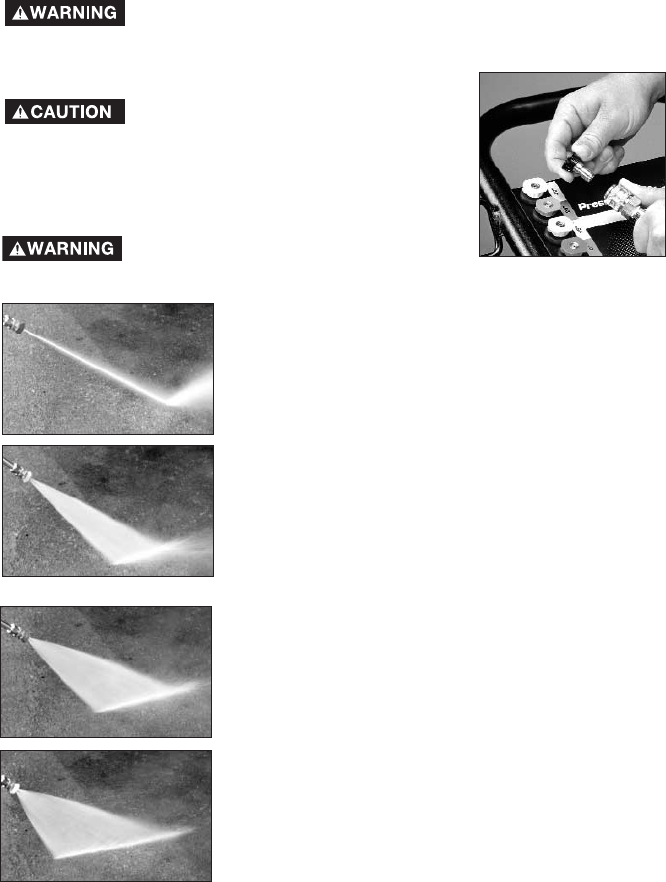
10- ENG
D25804
TO USE WAND
Your pressure washer is equipped with five spray nozzles. Each nozzle is color
coded and delivers a specific spray pattern for a particular cleaning purpose.
The size of the nozzle determines the size of the fan spray and the pressure out
of the nozzle. The 0º, 15º , 25º, and 40º nozzles are high pressure nozzles. The
chemical nozzle is a low pressure nozzle.
The nozzles are housed in receptacles on the panel of the pressure washer
handle. Colors on the panel identify nozzle location and spray pattern.
Risk of injection or injury to person. Do not direct discharge
stream toward persons, unprotected skin, eyes, or any pets
or animals. Serious injury can occur.
Changing Nozzles
DO NOT attempt to change nozzles
while pressure washer is running.
Turn engine off before changing nozzles.
1. Pull quick connect coupler back and insert nozzle.
2. Release quick connect coupler and twist nozzle to
make sure it is secure in coupler.
Risk Of Injury. Ensure nozzle is
completely inserted in QC socket, and
QC snap ring is fully engaged (forward) before squeezing gun trigger.
0º nozzle - Red. This nozzle delivers a pinpoint
stream and is extremely powerful. It covers a very
small area of cleaning. This nozzle should only be
used on surfaces that can withstand this high
pressure such as metal or concrete. Do not use
on wood.
15º nozzle - Yellow. This nozzle delivers a
powerful 15 degree spray pattern for intense
cleaning of small areas. This nozzle should only be
used on areas that can withstand the high
pressure from this nozzle.
25º nozzle - Green. This nozzle delivers a 25
degree spray pattern for intense cleaning of larger
areas. This nozzle should only be used on areas
that can withstand the pressure from this nozzle.
40º nozzle - White. This nozzle delivers a 40
degree spray pattern and a less powerful stream
of water. It covers a wide area of cleaning. This
nozzle should be used for most general cleaning
jobs.
Chemical nozzle - Black. This nozzle is used to
apply chemicals or cleaning solutions. It has the
least powerful stream.


















